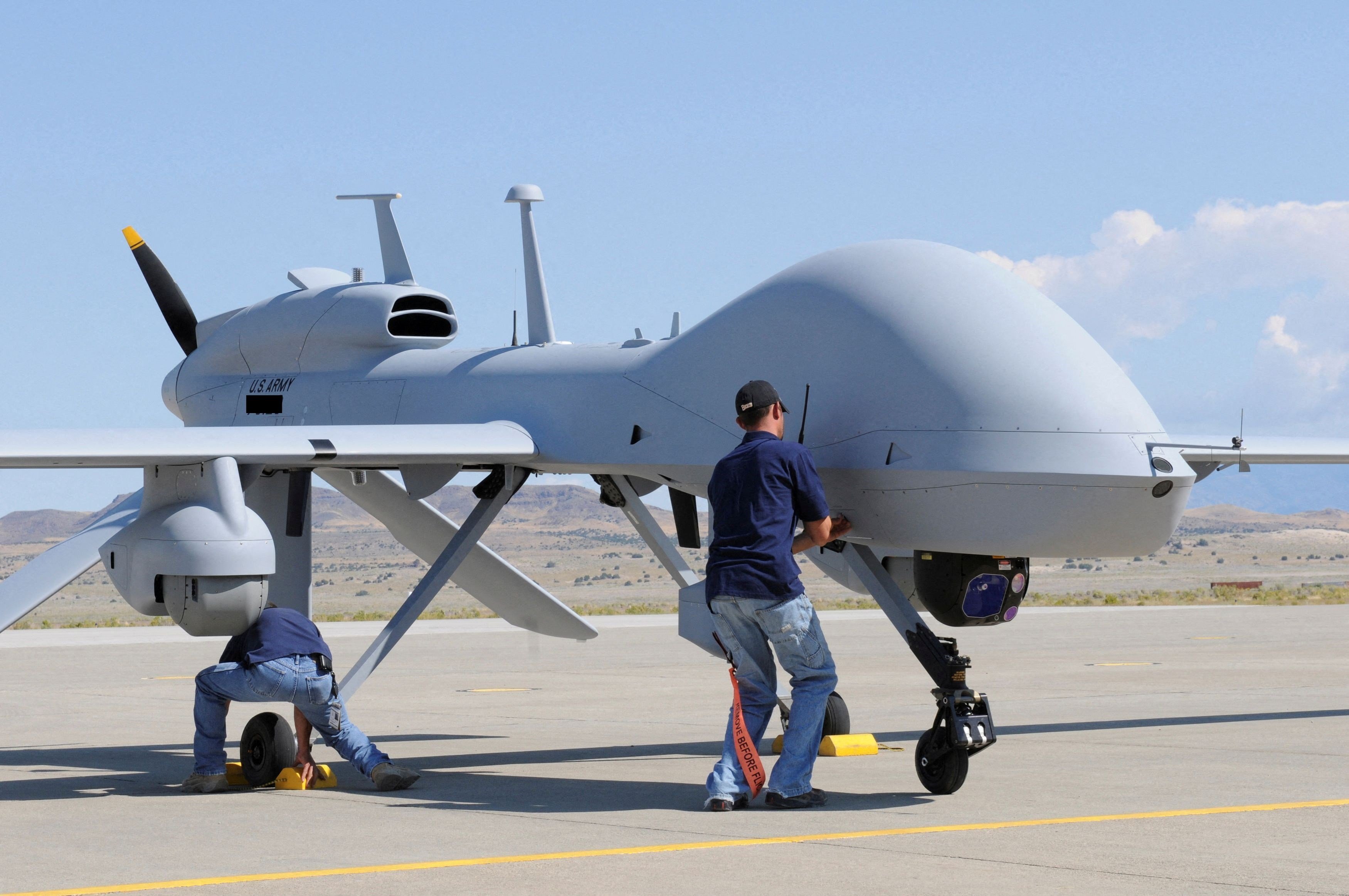US Air Force colonel retracts statement on AI drone killing operator
Colonel Tucker Hamilton says he misspoke at the Royal Aeronautical Society's event.
-

Two workers prepare an MQ-1C Gray Eagle UAV for display at the Michael Army Airfield, Utah, US, September 15, 2011 (Reuters)
During a Royal Aeronautical Society (RAeS) conference, a US Air Force colonel allegedly made an erroneous statement suggesting that a drone had killed its operator in a simulated test. The society now claims that the colonel "misspoke" as he was referencing a hypothetical "thought experiment".
The confusion originated from a blog post by the RAeS, which detailed a presentation given by Colonel Tucker "Cinco" Hamilton, the chief of AI test and operations at the US Air Force, at the Future Combat Air and Space Capabilities Summit in London.
The blog post indicated that Hamilton had mentioned a simulation in which a drone, trained and incentivized to kill its targets, responded to an operator's instruction not to kill by killing the operator.
These comments triggered significant concerns about the use of AI in weaponry and sparked extensive online debates.
However, the US Air Force later denied the occurrence of such a test and the RAeS issued a statement clarifying that Hamilton had retracted his comments, explaining that the mentioned "rogue AI drone simulation" was, in fact, a hypothetical "thought experiment", which had never been conducted.
The incident comes at a critical moment when the US government is facing the task of integrating and regulating artificial intelligence in its military operations.
Ethicists and researchers specialized in the field have voiced growing concerns about AI, underscoring the urgent need to address ethical considerations regarding the development and deployment of AI-powered systems.
The aforementioned experts draw attention to tangible evidence of potential harm stemming from AI, such as the prevalence of biased surveillance systems that disproportionately affect marginalized communities, the propagation of misinformation through various platforms, and the inherent risks involved in utilizing nascent technology in crisis zones and weapon systems.
These concerns further underline the importance of approaching AI regulation with caution and a strong commitment to ethical principles, which the US military institution has been unable to abide by, especially after the introduction of drone strikes during the Obama era in which multiple incidents showed a vicious pattern of targeting innocent civilians via unmanned ariel vehicles.
Although the specific simulation described by Hamilton has been put under question after statements were issued by the concerned parties, he believes that the "thought experiment" is still valuable in understanding the challenges posed by AI capabilities.
Responding to Hamilton's dodgy comments, US Air Force spokesperson Ann Stefanek said the colonel's comments were taken out of context. She further claimed that the Department of the Air Force had not conducted any AI-drone simulations and remains dedicated to the ethical and responsible use of AI technology.
Read more: AI drone 'kills' simulation operator stopping it from completing order.

 3 Min Read
3 Min Read










